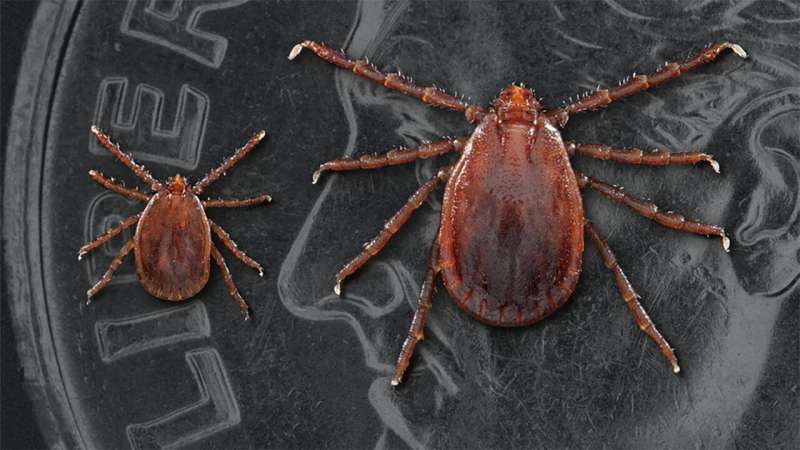
Researchers at the University of Missouri College of Veterinary Medicine have made an unprecedented discovery in Boone County, Missouri. They have identified invasive longhorned ticks in this region for the first time. This finding raises concerns for cattle health in mid-Missouri, as the longhorned tick has already caused significant agricultural losses worldwide. Moreover, these ticks have the potential to transmit various pathogens to humans.
“These longhorned ticks have the potential to transmit theileriosis, a disease that can be fatal for cattle,” states Rosalie Ierardi, a clinical instructor at the MU Veterinary Medical Diagnostic Laboratory (VMDL) and a doctoral student at the MU College of Veterinary Medicine. Ierardi previously discovered longhorned ticks in northern Missouri. The symptoms of theileriosis in cattle include weight loss, tiredness, weakness, jaundice, and pregnancy loss, which have significant economic consequences for cattle ranchers.
Ierardi made the discovery in late April with the guidance of Ram Raghavan, an associate professor in the MU College of Veterinary Medicine and the MU College of Health Sciences. This finding is part of Ierardi’s doctoral dissertation research.
The longhorned tick is an invasive species that originated in eastern Russia and Australasia. It was first detected outside quarantine in the United States in 2017 and has since spread throughout the Mid-Atlantic, New England, and Midwestern regions. Currently, it has been officially identified in at least 19 states.
Raghavan explains, “These discoveries raise awareness among veterinarians and livestock producers in Missouri, allowing them to monitor animal health more effectively and make informed decisions. Rising temperatures and increased outdoor activities in tick-prone areas have contributed to the higher rates of ticks transmitting pathogens to wildlife, humans, and pets.”
Unlike most ticks, female longhorned ticks can reproduce asexually, laying thousands of eggs without the need for a male. This reproductive advantage allows the species to establish quickly in new areas.
Raghavan, who has been studying the spread of ticks in the U.S. for 16 years and has a background in public health, predicted the potential geographic distribution of the longhorned tick in a 2019 study. His predictions have proven accurate thus far.
“As a land-grant institution, the University of Missouri is committed to assisting Missouri veterinarians and livestock producers in monitoring animal health,” says Raghavan. “Unfortunately, it seems that longhorned ticks are here to stay. Therefore, we need to remain vigilant and closely monitor the situation in the central Midwest, where there is a lack of critical information about tick biology.”
Ierardi and Raghavan encourage Missouri livestock producers to seek assistance from local veterinarians or the MU VMDL if they notice any signs of weakness, tiredness, jaundice, or pregnancy loss in their cattle.
Citation:
Longhorned ticks discovered in Boone County for the first time, researchers find (2023, July 24)
retrieved 24 July 2023
from https://phys.org/news/2023-07-longhorned-boone-county.html
This document is subject to copyright. Apart from any fair dealing for the purpose of private study or research, no
part may be reproduced without the written permission. The content is provided for information purposes only.
Denial of responsibility! TechCodex is an automatic aggregator of the all world’s media. In each content, the hyperlink to the primary source is specified. All trademarks belong to their rightful owners, and all materials to their authors. For any complaint, please reach us at – [email protected]. We will take necessary action within 24 hours.

Jessica Irvine is a tech enthusiast specializing in gadgets. From smart home devices to cutting-edge electronics, Jessica explores the world of consumer tech, offering readers comprehensive reviews, hands-on experiences, and expert insights into the coolest and most innovative gadgets on the market.


